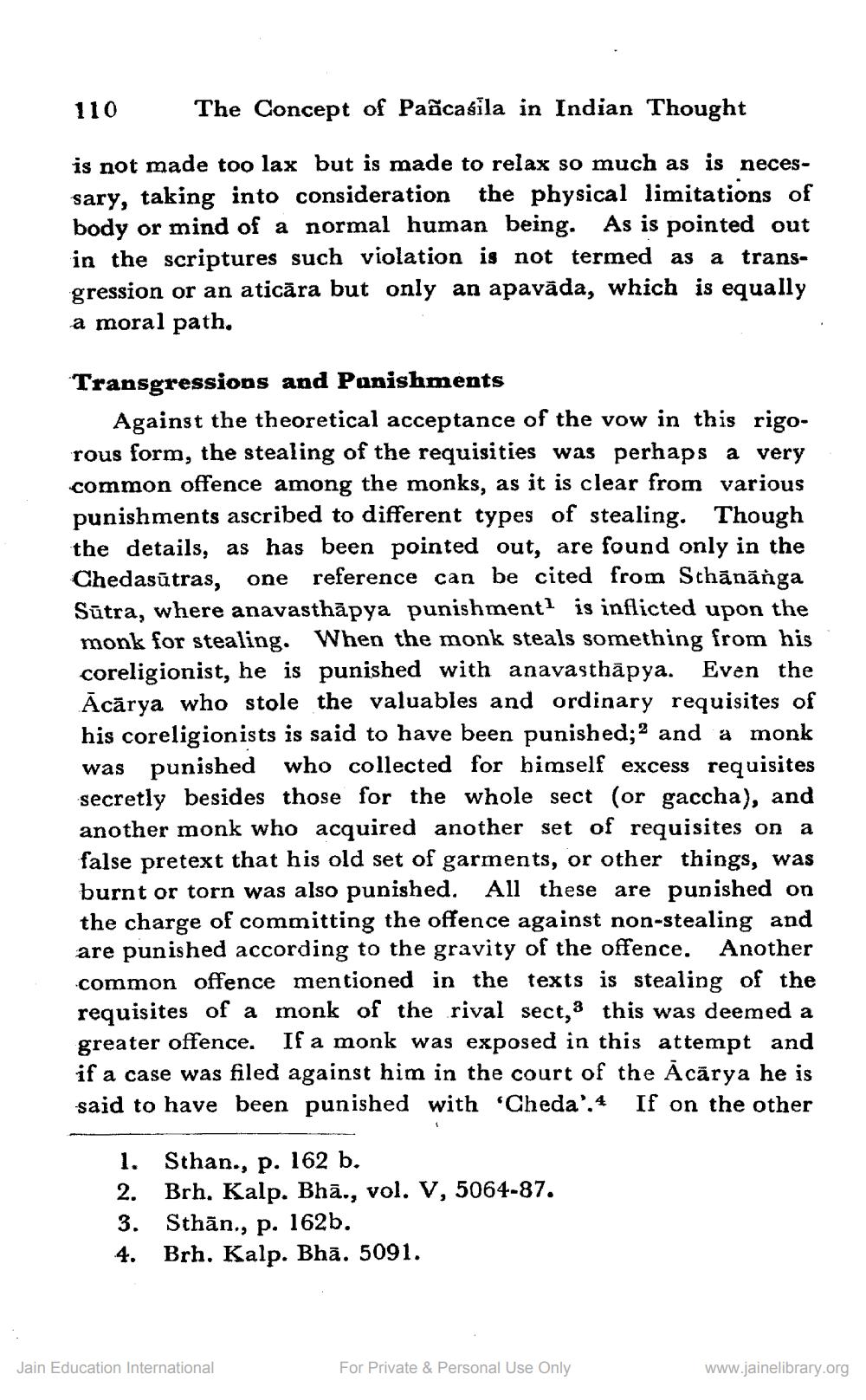________________
The Concept of Pancasila in Indian Thought
is not made too lax but is made to relax so much as is necessary, taking into consideration the physical limitations of body or mind of a normal human being. As is pointed out in the scriptures such violation is not termed as a transgression or an aticāra but only an apavada, which is equally a moral path.
110
Transgressions and Punishments
Against the theoretical acceptance of the vow in this rigorous form, the stealing of the requisities was perhaps a very common offence among the monks, as it is clear from various punishments ascribed to different types of stealing. Though the details, as has been pointed out, are found only in the Chedasūtras, one reference can be cited from Schānanga Sūtra, where anavasthāpya punishment is inflicted upon the monk for stealing. When the monk steals something from his coreligionist, he is punished with anavasthäpya. Even the Acarya who stole the valuables and ordinary requisites of his coreligionists is said to have been punished; and a monk was punished who collected for himself excess requisites secretly besides those for the whole sect (or gaccha), and another monk who acquired another set of requisites on a false pretext that his old set of garments, or other things, was burnt or torn was also punished. All these are punished on the charge of committing the offence against non-stealing and are punished according to the gravity of the offence. Another common offence mentioned in the texts is stealing of the requisites of a monk of the rival sect, this was deemed a greater offence. If a monk was exposed in this attempt and if a case was filed against him in the court of the Acarya he is said to have been punished with 'Cheda'.4 If on the other
1. Sthan., p. 162 b.
2.
3.
4.
Brh. Kalp. Bhā., vol. V, 5064-87.
Sthan., p. 162b.
Brh. Kalp. Bhā. 5091.
Jain Education International
For Private & Personal Use Only
www.jainelibrary.org




